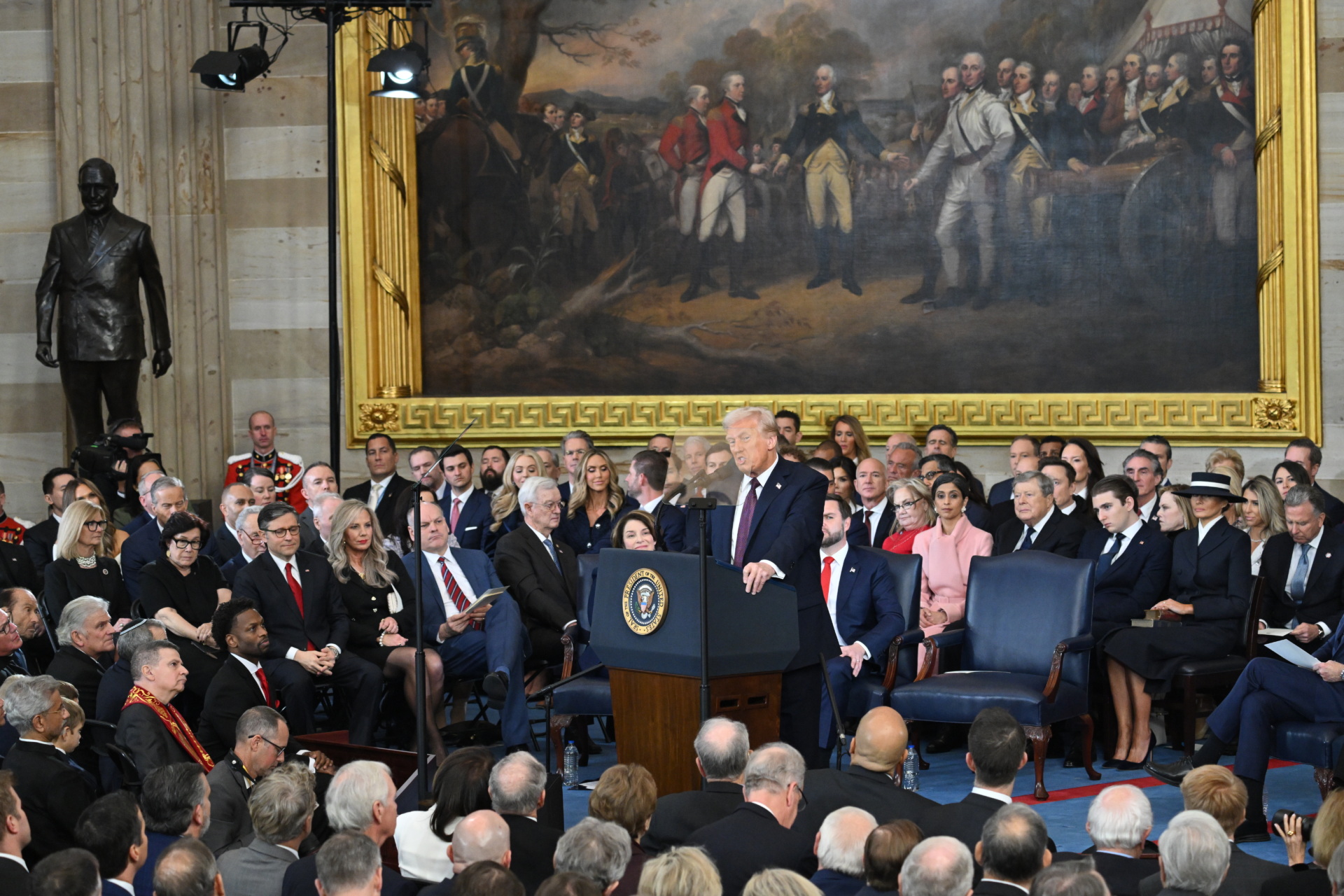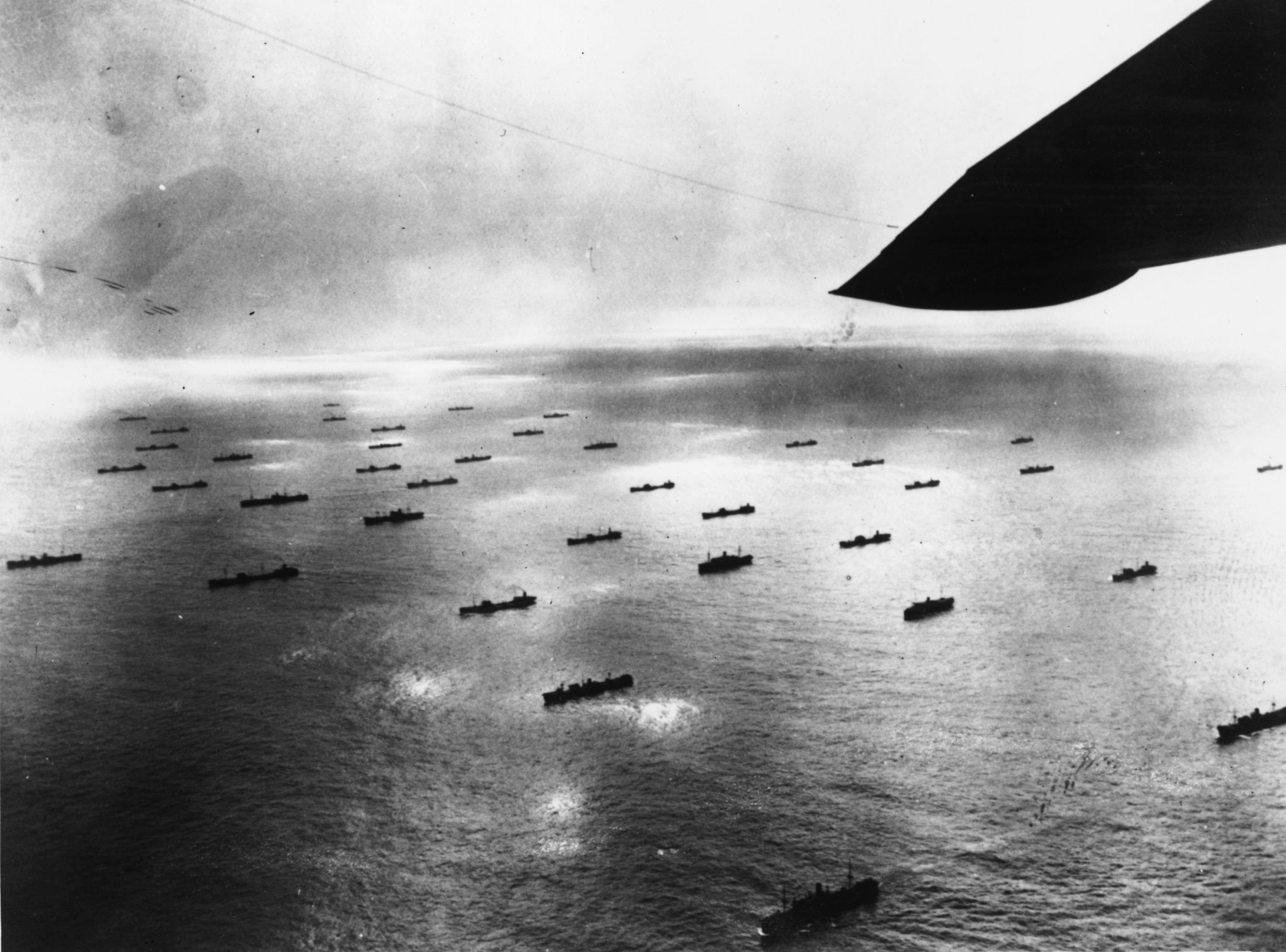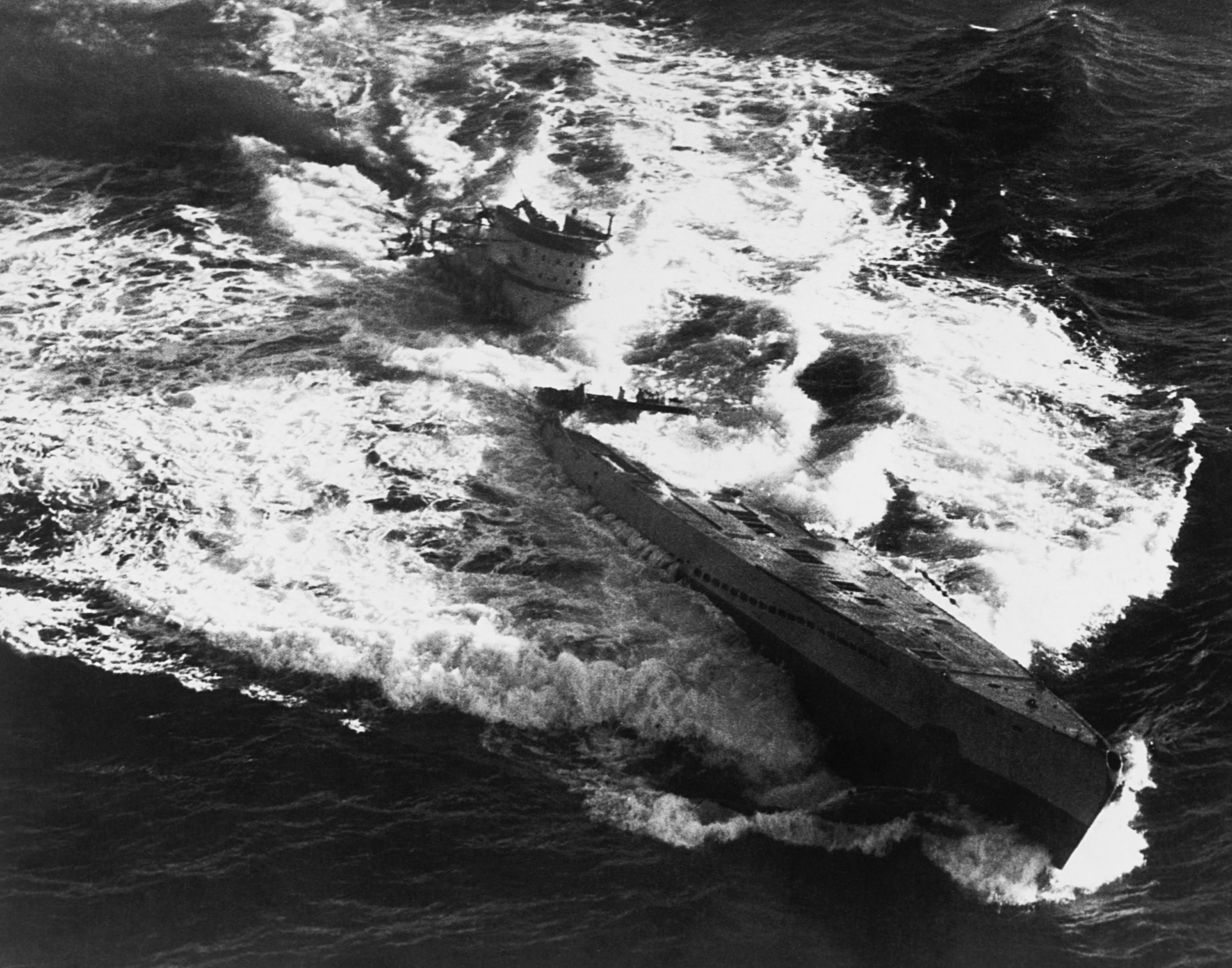Pinkerton: The Trump Doctrine—Make America Bigger Again
Amidst everything else he’s doing, President Donald Trump is changing America’s footprint in the world—it’s getting much bigger.
As he said in his second inaugural address, “The United States will once again consider itself a growing nation—one that increases our wealth, expands our territory, builds our cities, raises our expectations, and carries our flag into new and beautiful horizons.”
As MSM outlet Axios concedes, Trump has “moved the Overton Window on American expansion by publicly musing about seizing or acquiring Greenland, Canada and the Panama Canal.” So, Trump talks tough to the Danish prime minister (whose country owns Greenland), Secretary of State Marco Rubio is traveling to Panama, and Republicans in Congress are mobilizing to support Trump’s expansionism.
For some punning historical perspective, we can look to the cover of The New York Post: “The Don-Roe Doctrine.” That’s a play on the Monroe Doctrine—the assertion, back in 1823, of American interests in South America. And in fact, Trump national security adviser Mike Waltz looks south and says, “Monroe 2.0.”
But leave it to the Republican majority on the House Foreign Affairs Committee to simplify and clarify the matter at hand: “The Trump Doctrine.”

President Donald Trump delivers his inaugural address after being sworn in at the U.S. Capitol Rotunda on January 20, 2025, in Washington, DC. (Saul Loeb – Pool/Getty Images)
That’s a keeper phrase: The Trump Doctrine. It’s in the same key, of course, as MAGA: A bottom-line-minded emphasis on economic acceleration and strategic maximization. The U.S. should be the strongest, richest, safest country in the world.
Going back to Christopher Columbus, Myles Standish, and George Washington, this aggrandizing vision is a proven winner: It’s how America Was Made Great in the first place. Many have compared Trump’s current territorial ambitions to the Louisiana Purchase in 1803, or the buying of Alaska in 1867. And yet there have been many more positive acquisitions, too, including Florida in 1821, Texas and California (and much elsewhere in the West) in 1848, and additional chunks of what’s now Arizona and New Mexico in 1854.
And we were just getting started! The U.S. added Hawaii in 1898, (although it did not become a state until 1959). That same year, 1898, the U.S. also gained Puerto Rico and Guam—which to this day are in American hands. At around the same time, the U.S. negotiated control of critical territory for the Panama Canal; although it took until 1914 to to actually dig the fabled waterway.
Precisely because the Canal was so important, the U.S. took additional steps to protect it. That meant situating bases and defensive perimeters on both sides of the asset. To the west, on the Pacific side, we fortified, and on the east as well. For instance, during World War One, the U.S. eyed the threat from Germany. And so we purchased the Virgin Islands—53 spots of land, total, in the Caribbean—from Denmark.
Then, in World War Two, Denmark was overrun by the German Wehrmacht. So, for their own safekeeping, the Americans occupied more Danish possessions—including Greenland and the nearby Faroe Islands. These became some of the supporting staging areas for the liberation of Denmark, as well as the rest of Europe.
Yet to win the fight against Hitler and Nazism, we needed still more bases in the Atlantic. To cite one of a hundred examples, the U.S. built an Army Air Force base, Fort Pepperrell, at St. John’s, Newfoundland, Canada in 1940-1. Its story is its own kind of gritty wartime heroism: a tale of rapid construction in remote terrain in a difficult climate; there Uncle Sam placed 5,500 GIs to help with air patrols interdicting German submarines seeking to torpedo our ships as they crossed the Atlantic.
These days, the Battle of the Atlantic is relatively little remembered, although the Tom Hanks movie Greyhound, from 2020, recalls its intensity.
The battle was for sure, an epic effort. The U.S. shipped millions of men, and nearly 80 million tons of cargo, across the Atlantic, braving U-boats, of which the Germans built more than 1100. During that sea war, some 3,500 Allied cargo ships and another several hundred military vessels were sunk. Total Allied losses, including the Merchant Marine: about 66,000 (the German Kriegsmarine lost more than 800 U-boats and 30,000 men).

15th November 1941: A large convoy of ships seen from a US Navy flying boat patrolling the North Atlantic. (Photo by Keystone/Getty Images)

German submarine, U-185, sinks after a combined attack from several aircraft. World War II. North Atlantic Ocean. (Photo by Corbis via Getty Images)
In the eight decades since World War Two, it’s been just as important to keep the Atlantic open, while also maintaining a forward defense perimeter around the American homeland. The U.S. has had to stay on watch against the encroachments of the Soviet Red Navy—and now the fleets of Russia. Plus, as well, threats from Communist China’s People’s Liberation Army Navy (yes, that’s what they call it).
Italian prime minister Giorgia Meloni praises Trump’s emerging strategy. In her words, the incoming 47th president has found “a forceful way of saying that the US will not stand idly by . . . while other major players move into areas that are of strategic interest to the U.S. and to the west.”
Moreover, to the extent that Arctic ice is, in fact, melting, circumpolar sea routes will be opening up, and that means new military threats (as well as new commercial opportunities; everything from shipping to fishing to drilling). So, Greenland will be all more vital.
We can see: The Trump Doctrine is fully in accord with the best American traditions of national security and economic expansion.
But that doesn’t mean it isn’t controversial. After all, the predominant thought-mode of the U.S. foreign policy establishment has been managed decline. That is, the slow decay of American power, as the U.S. has focused on climate change (never mind that China continues to build more coal plants), arms control (never mind that Iran has been cheating all along) and immigration intake (that policy has been a great “success”).
So American “declinists” are not going to like the Trump Doctrine. On CNN recently, this hostility was on display. The Washington Post’s Josh Rogin said, “America is not an expansionist military power.” To which Scott Jennings—the token Republican on CNN, but a real Republican nonetheless—riposted:
You can think small if you want to. I think Trump’s thinking big, and he’s thinking about interests. There are U.S. interests in Greenland. They have rare Earth minerals. We already have some kind of space facility there. And it would help fortify us against the Russians. The Panama Canal is, of course, of interest when you consider the Chinese incursions and influence in this hemisphere. What Donald Trump is saying to the world is we are not a shrinking violet anymore. We are the United States of America. We are the preeminent superpower.
As the preeminent superpower—the U.S. is home, for instance to somewhere between 65 percent and 73 percent of the world’s stock market value—we can lock in our advantage with prudential (and peaceful, as Vice President JD Vance insists) territorial enlargements. In fact, the idea of Greenland, in particular, is catching on. In the words of retired four-star admiral James Stavridis–as a former commander of NATO, intimately familiar with sea-lane issues–“We could do an awful lot in terms of business, investment, box out the Russians, box out the Chinese.”
We don’t need to fight a war to acquire Greenland. We can simply say to Denmark, or to Greenland directly (it’s a bit unclear who’s in charge), If you want us to continue to defend you in NATO, you really ought to let us buy the territory–or at least grant us important development concessions.
The Trump Doctrine is so obviously a good idea that it’s picking up fans even across the partisan divide. For instance, as Donald Trump Jr. was visiting Greenland, Sen. John Fetterman (D-PA), a visitor to Trump Sr. in Mar-a-Lago, signaled his support for the mega transaction: “It’s a responsible conversation . . . Remember the Louisiana Purchase? I think Alaska was a pretty great deal, too.”
There’s a useful word, deal. In his 1987 best-seller, The Art of the Deal, Donald Trump declared, “I like thinking big. I always have.” That was four decades ago. Today, President Trump’s thinking is even bigger.
Yes, it’s really happening, and we’re all fortunate to be here as witnesses—and perhaps as patriotic participants in MABA–Make America Bigger Again.





Comments are closed.